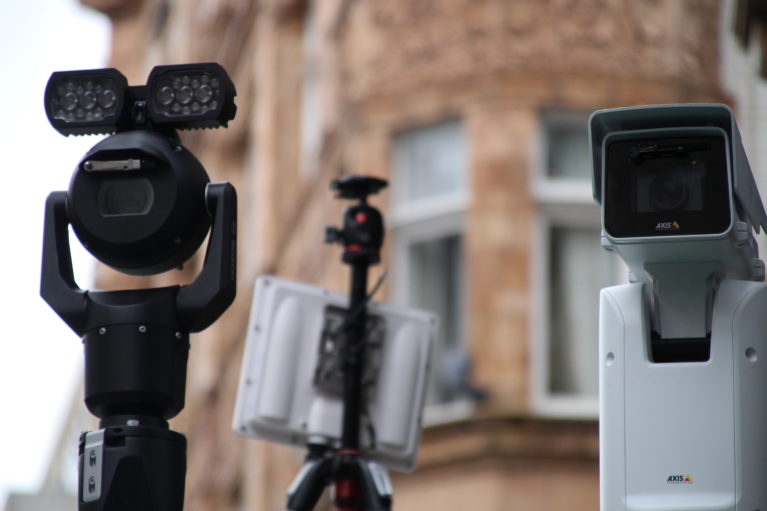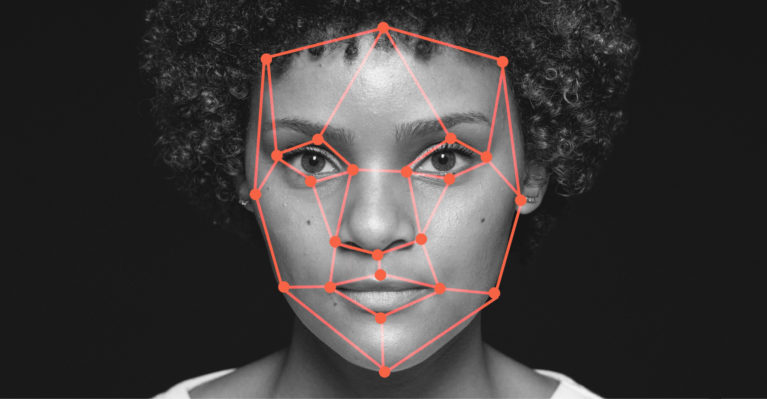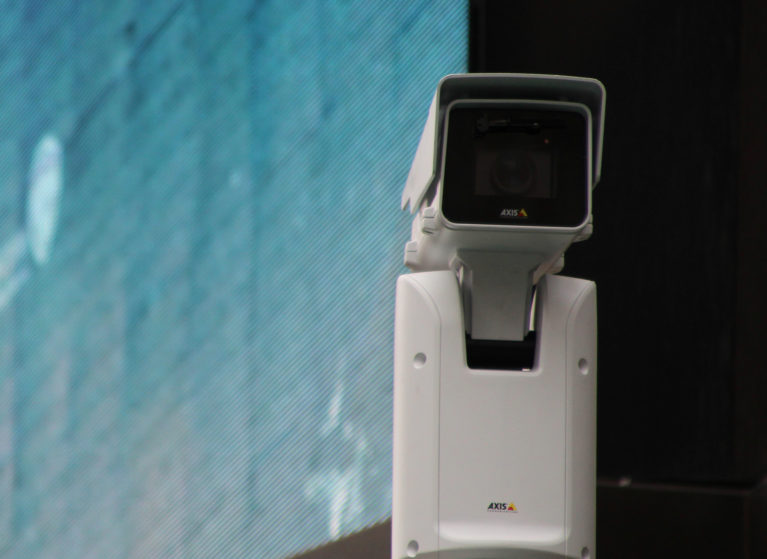Facial recognition
The fight to protect our rights from facial recognition is more important than ever
Posted by Hannah Couchman on 06 Sep 2019
The ushering in of Orwellian technology is something every UK citizen should be concerned about. The High Court found that South Wales Police’s use of this tech is lawful – for now. But our client Ed Bridges will appeal this judgment.
Our fight to ban the use of this authoritarian tech continues – and it’s gaining momentum. In less than a week, more than 5,000 people signed our petition calling for a government ban on this mass surveillance tool.
Facial recognition works by snatching a unique facial map from every single person who passes the camera, without their consent, and matching it against a secretive “watch list”. The watch list could contain images of anyone – including people not suspected of any wrongdoing – and taken from anywhere, including social media.
This tool allows the state and private companies to identify and track us – to monitor where we go and who we spend time with. As facial recognition spreads, we may decide not to attend public meetings or protests, or to avoid our local high street.
And it is spreading. The police continue to “pilot” facial recognition, which in reality amounts to operational use, and private companies are identifying and tracking people using this invasive technique – at shopping centres, football stadiums, museums, conference centres, shops and train stations. The police are even putting it on their smartphones so they can scan us wherever and whenever they choose.
Facial recognition has been sold to the public as if this tech is infallible – but in reality it replicates discrimination we see elsewhere in UK policing. This means facial recognition is particularly dangerous for black, Asian and minority ethnic (BAME) communities because the police have often chosen to use it in areas with predominantly BAME populations, and the tech is more likely to misidentify people of colour.
Liberty is fighting for a ban against this authoritarian surveillance – and we are not alone in expressing concerns about the impact on our rights. We join a host of civil society organisations, MPs from the Conservative Party, Liberal Democrats, Labour and the Scottish National Party, the Science and Technology Committee, the Biometrics Commissioner, the Surveillance Camera Commissioner, the Information Commissioner and the Mayor of London.
Despite clear arguments, the Court decided that live facial recognition does not unlawfully breach our rights. However, the Court agreed with us that the data collected by these cameras is “intrinsically private”, more like a fingerprint or DNA than it is a photograph – and that the technology interferes with the privacy rights of everyone who is scanned, regardless of whether they are on the watch list or whether their data is stored.
This is mass surveillance on our streets, seriously undermining our privacy and restricting our ability to move freely around public spaces. According to the London Policing Ethics Panel, forty per cent of 16-24 year olds would completely avoid events where facial recognition was in use. We shouldn’t have to change how we live our lives to protect ourselves from unwarranted surveillance.
Supporters of mass surveillance will use the threat of serious crimes to justify its use – but once this type of infrastructure is in place the use will inevitably expand. For example, the surveillance powers under the Regulation of Investigatory Powers Act were touted as provisions to prevent terrorism – but in reality were used to spy on people suspected of underage use of sun beds or allowing dogs to foul in public places. And “stop and scan” devices are being used by police to identify people in situations which don’t relate to law enforcement – despite the absence of any clear power to use policing and immigration databases for this purpose.
Mass surveillance doesn’t keep our society safe. Instead, it undermines the very rights and freedoms that protect us from state abuse of power and discriminatory treatment. Introducing laws to regulate the use of facial recognition will not address the threat to our rights – it would simply enable the state and private companies to exercise unprecedented control over our lives.
We can stem the tide of state surveillance, uphold our right to privacy and protect our ability to go about our lives without state interference.
Join us – stand up to protect your right to privacy. Sign the petition here.
I'm looking for advice on this
Did you know Liberty offers free human rights legal advice?
What are my rights on this?
Find out more about your rights and how the Human Rights Act protects them
Did you find this content useful?
Help us make our content even better by letting us know whether you found this page useful or not



